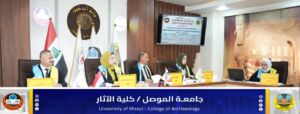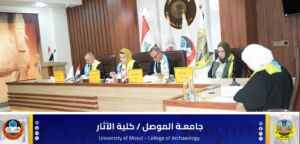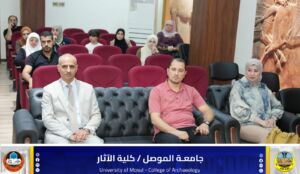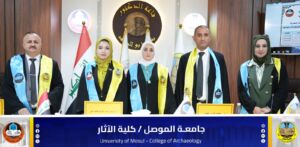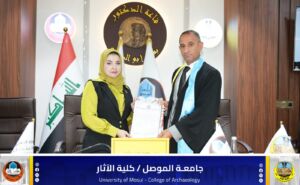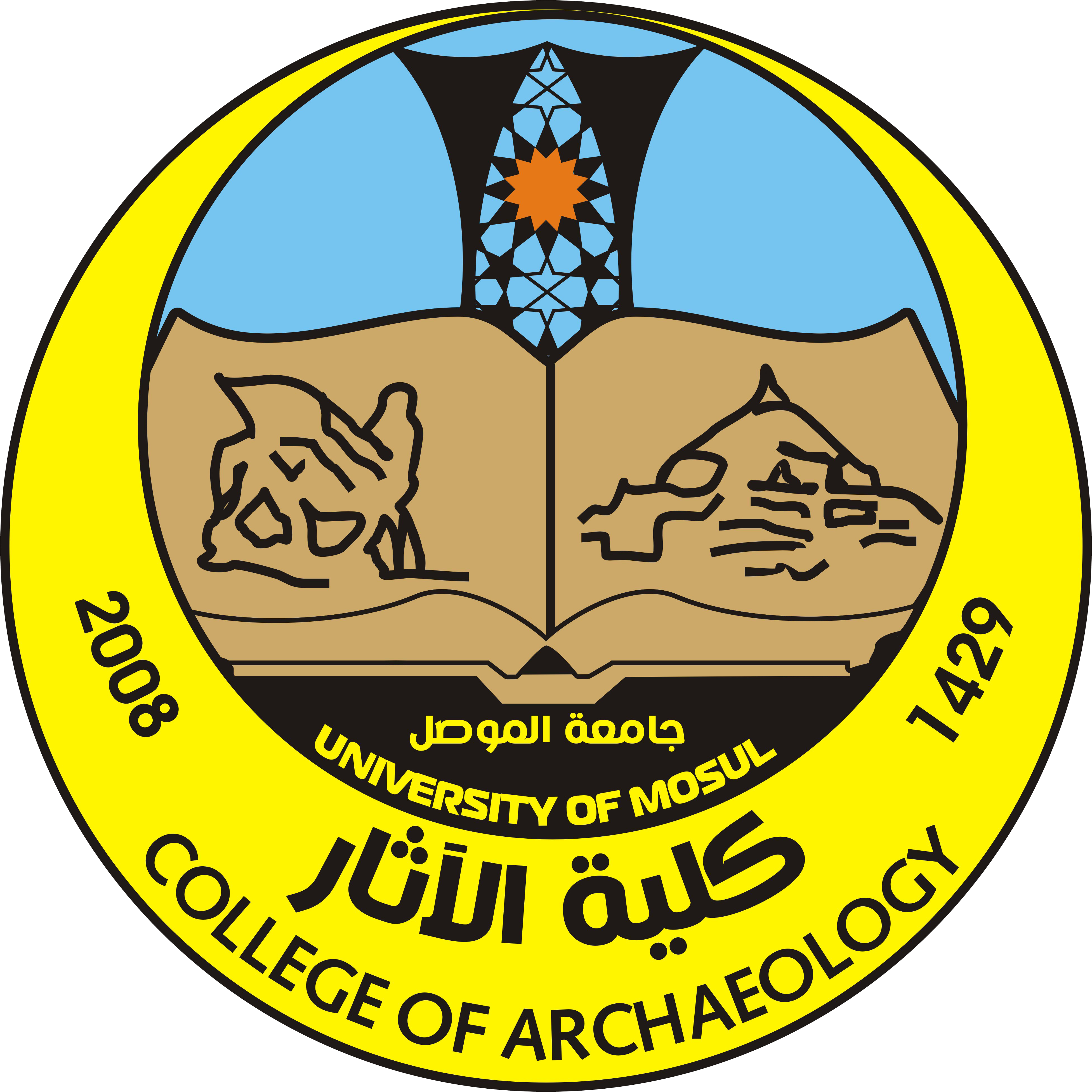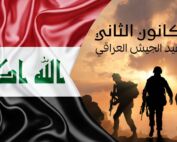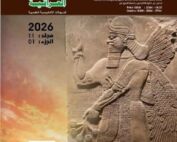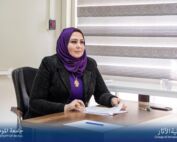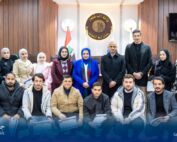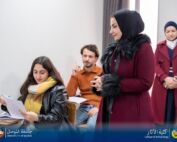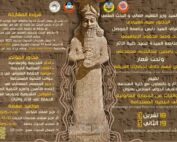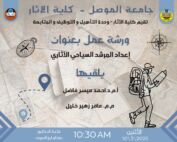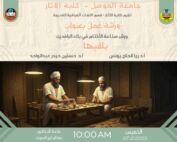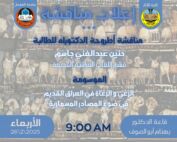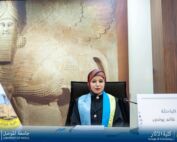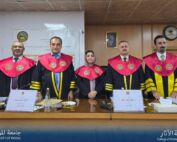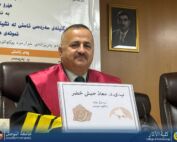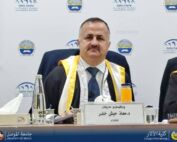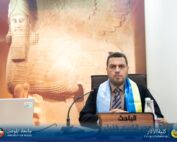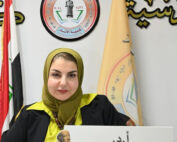21 August، 2024
A master’s thesis discusses the texts of Istikhara in the era of the Sargonic dynasty in light of cuneiform sources
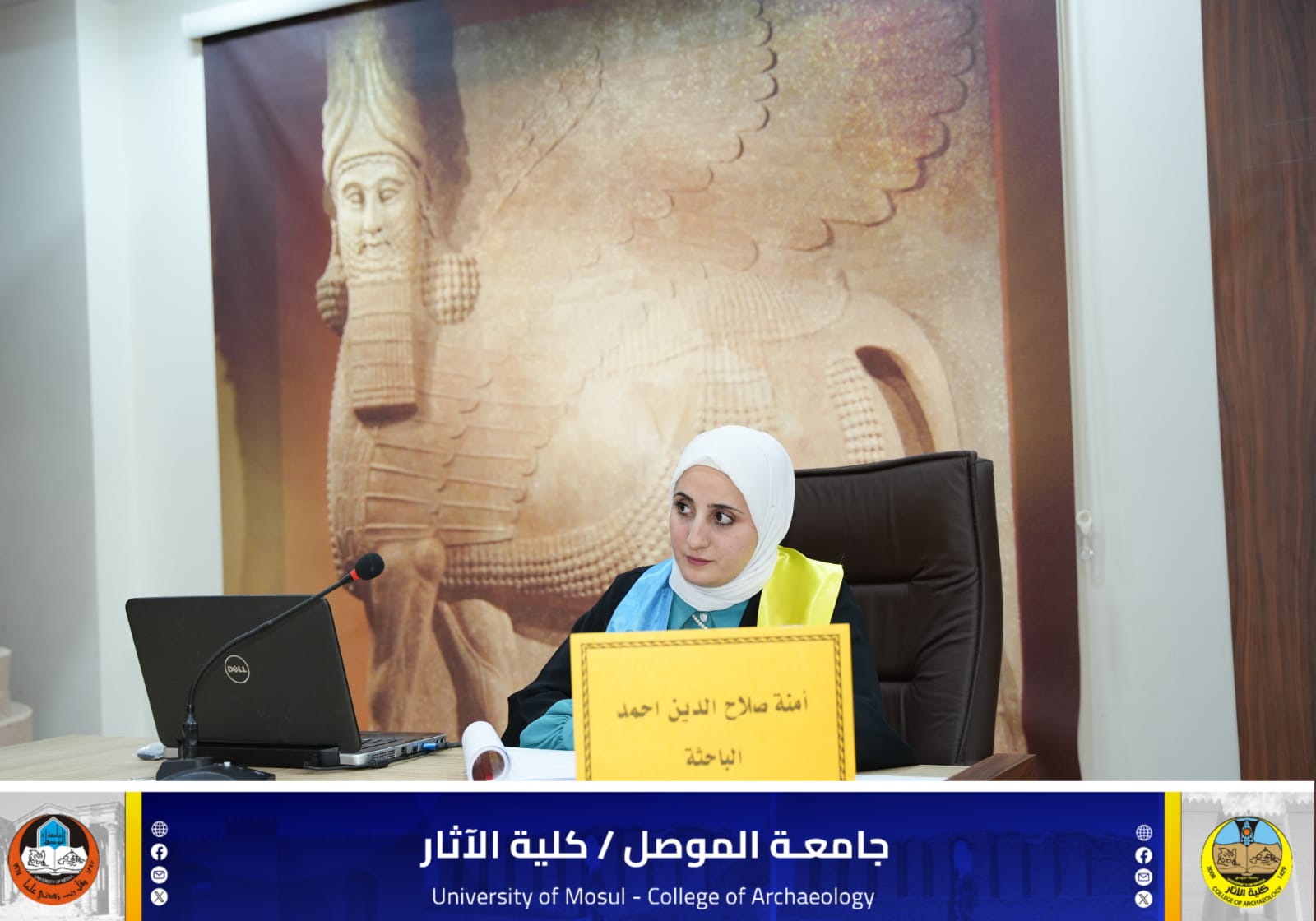
The Department of Ancient Iraqi Languages at the College of Archeology/University of Mosul discussed the master’s thesis entitled “Texts of Istikhara in the era of the Sargonic dynasty in light of cuneiform sources” on Wednesday, August 21, 2024. The Assistant Dean for Scientific Affairs, Assistant Professor Dr. Yasser Jaber Khalil, attended as a side.
The thesis submitted by the student, Amna Salah al-Din Ahmed, aimed to clarify the true meaning of the texts used by the kings of the Sargonic dynasty, especially King Esarhaddon and his son Ashurbanipal. These texts were translated as texts of inquiry and enquiry, while they are similar to istikharah in the Islamic religion, as they are directed to God. The thesis included an explanation of the wording of these texts, such as (remembrance of God, the method of request and supplication, the conditions required to complete the rituals, and the purpose of istikharah). The contents of these texts varied between military, political, religious, medical, and economic, and demonstrated the kings’ adherence to knowing God’s answer to their questions.
The thesis concluded that the texts of Istikhara relied on a number of rituals, the most important of which was the purity of the body, in addition to that the texts of Istikhara included military, political, religious, and other implications.
The discussion viva committee was chaired by Professor Dr. Yasmine Abdel Karim Muhammad Ali, Dean of the College of Archeology at the University of Mosul, with the membership and supervision of Professor Dr. Mahmoud Fares Othman from Tikrit University/College of Arts, Assistant Professor Dr. Moaz Habash Khadr, and the membership and supervision of Assistant Professor Dr. Shaima Ali Ahmed.
The Deanship of the College and the Head of the Department congratulate the researcher and the supervisor on this scientific achievement
